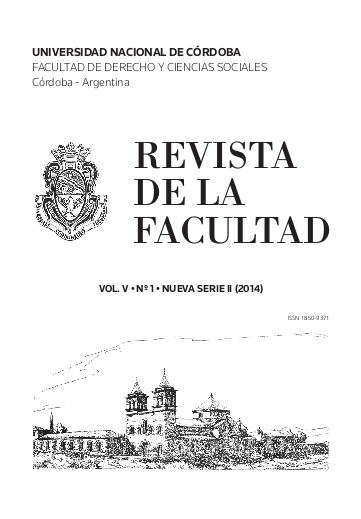Elderly housing and elder law: Abaut the argentinean legislation
Keywords:
elderly housing, human rights, elder law, legislationAbstract
Elderly housing is an alternative adopted by families, society and States for accommodation, care status and health care, required by old persons, increasingly. This paper offers a systematic study on legal status of these institutions, as well as about the legal condition of the elderly who live there. It shows a historical perspective that realizes its evolution in Western culture and it develops a legal analysis of the legislation, social relationships and values (justice, utility and truth) referred to Elderly housing and their residents. Guidelines for future legislation are proposed too. Among others, this paper highlights: consider “old age” as an important criterion for positive differentiation in our legal system in order to respect their status in terms of real equality. Ensuring the contractual nature of the legal relationship between each resident and the institution and respecting the exercise of freedom of choice of the elders. Avoid hospitalizations against the will of old people, legally capable. Preserve their rights to identity, physical and moral integrity, the enjoyment of decent housing and health rights. Guarantee their rights to privacy and reputation. Affirm the exercise of their rights to property, in terms of its heritage and its own body. Incorporate living wills and informed consent in Elderly housing contracts.Downloads
Published
2014-11-16
Issue
Section
Doctrine and research
License
La publicación del artículo implica la donación de los derechos de autor a la Facultad de Derecho, conservando el autor su derecho a utilizar el artículo en publicaciones de su autoría o páginas web referidas a su trayectoria. Para el caso de otro tipo de publicaciones, antes de su utilización, deberá obtener autorización de la facultad.
How to Cite
Elderly housing and elder law: Abaut the argentinean legislation. (2014). Revista De La Facultad De Derecho, 5(2). https://revistas.psi.unc.edu.ar/index.php/refade/article/view/11671


